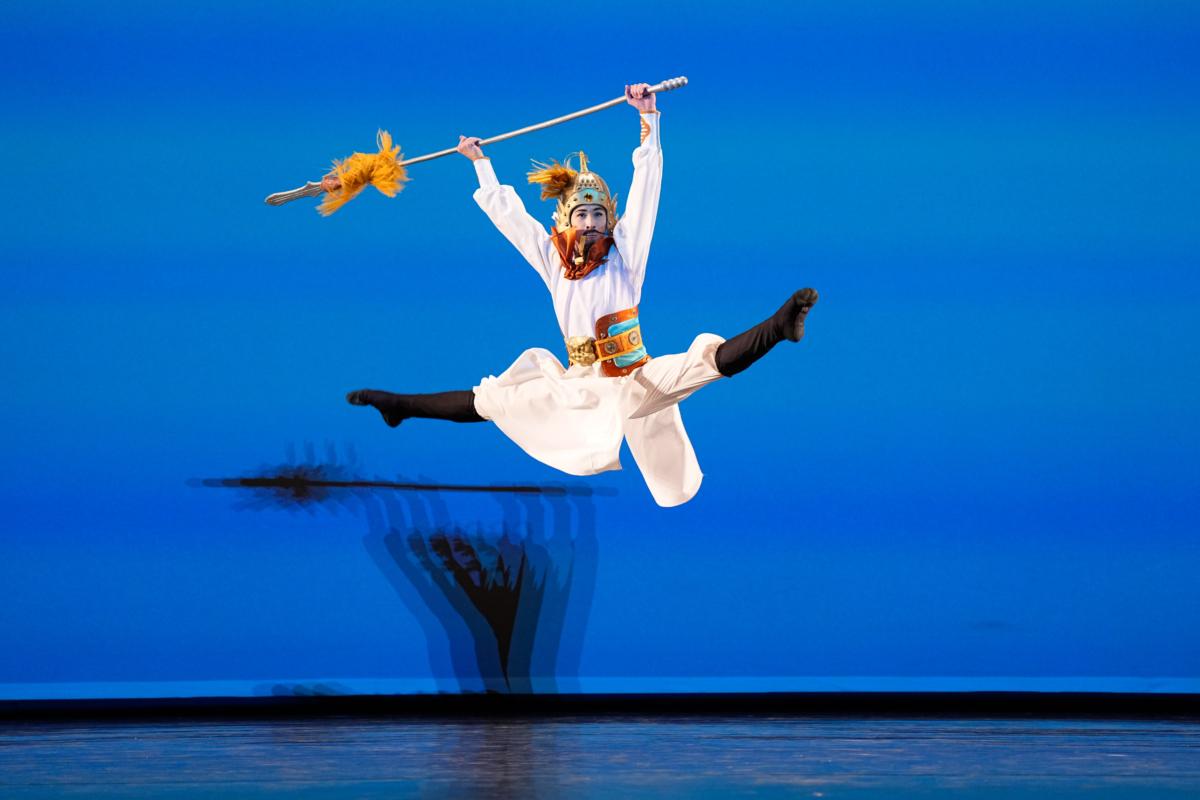For the second time in a row, Lucas Browde won the Gold award in the junior division at the NTD International Classical Chinese Dance Competition.
The competition, which took place Sept. 7 to 10 in New York state, is one is a series of events NTD hosts to promote traditional culture. As such, the mission of the dance competition is to portray pure beauty and authenticity, and requires dancers to perform classical Chinese dance in its most authentic form.
Lucas performed “Loyalty of Yue Fei,” portraying one of the most famous generals in Chinese history.
“He is like the definition of loyalty in ancient China,” Lucas said. The ancient Chinese spoke of many virtues, among them “zhong,” or loyalty, and Yue Fei represents “the highest level of loyalty to your country.”
“I think being able to portray this story, it’s not only his loyalty to his country, but being able to let himself go, let all his personal notions [go],” he said. “It’s not just a hero fighting for his country, but it’s the highest loyalty.”
“The story is, he’s claiming back lost land, he’s undefeated, and he’s almost back to the capital. And then suddenly, he gets 12 golden tablets sent from the emperor because of a corrupt prime minister,” he said. “So right as he’s about to achieve his goal, he gets 12 imperial edicts [to stop fighting]. You can’t ignore these, you have to follow those, or else you'll get beheaded.”
“There’s a saying in Chinese: 10 years of hard work gone in an instant. So that feeling he has, to put aside all his personal wants, and to listen to higher above ... and realize that heaven basically has other plans, not exactly what he wanted it to be,” Lucas said.

It was a challenging role to take on, not just because the general’s personality and experience was different from his own, but because he had to use body language to bring to life a character who was really quite subdued with his emotions.
“He’s more introverted ... even though he’s experiencing intense emotions, he’s angry, he’s really angry, he’s really frustrated, but he doesn’t fight back. He holds it in: endurance, forbearance, to be able to take all your hardships and just hold it in yourself, and just do what you have to do,” Lucas explained. “It’s not easy.”
“It grabs your heart, but on the outside you don’t show it. It’s that type of acting, instead of explosive ... you have to express that you’re clenching inside, but on the outside you’re listening to the orders,” he said.
“I’m more like an excited young male who likes to have fun,” he said. “I think by choosing this, something that doesn’t fit me, if I do this piece and slowly work my way through it, slowly improve, then after going through this experience I'll be able to act something that’s not me.”
Lucas is accustomed to taking on challenges. When he first began to dance, the focus was on the exterior: technique, flexibility, strength, posture. He wasn’t flexible to begin with, and doing backflips made him nervous. But progress can only be made by keeping at it day after day, he explained, and dance isn’t something you learn overnight. Challenges come one after another, but having a purpose-filled heart, you learn to face them.
“Sometimes it gets you down, even for several days. But actually every time you encounter hardship, it’s to your benefit. Whether you did something well or not, you learn something,” he said. “I’ve learned to face everything with a positive mindset. Anything, good or bad, that you encounter is an opportunity for improvement.”
And then “once you become a professional artist, what you do is you cultivate your inside,” he said. “You start learning, you start experiencing. You learn to not only show art, but to portray and express it.”








